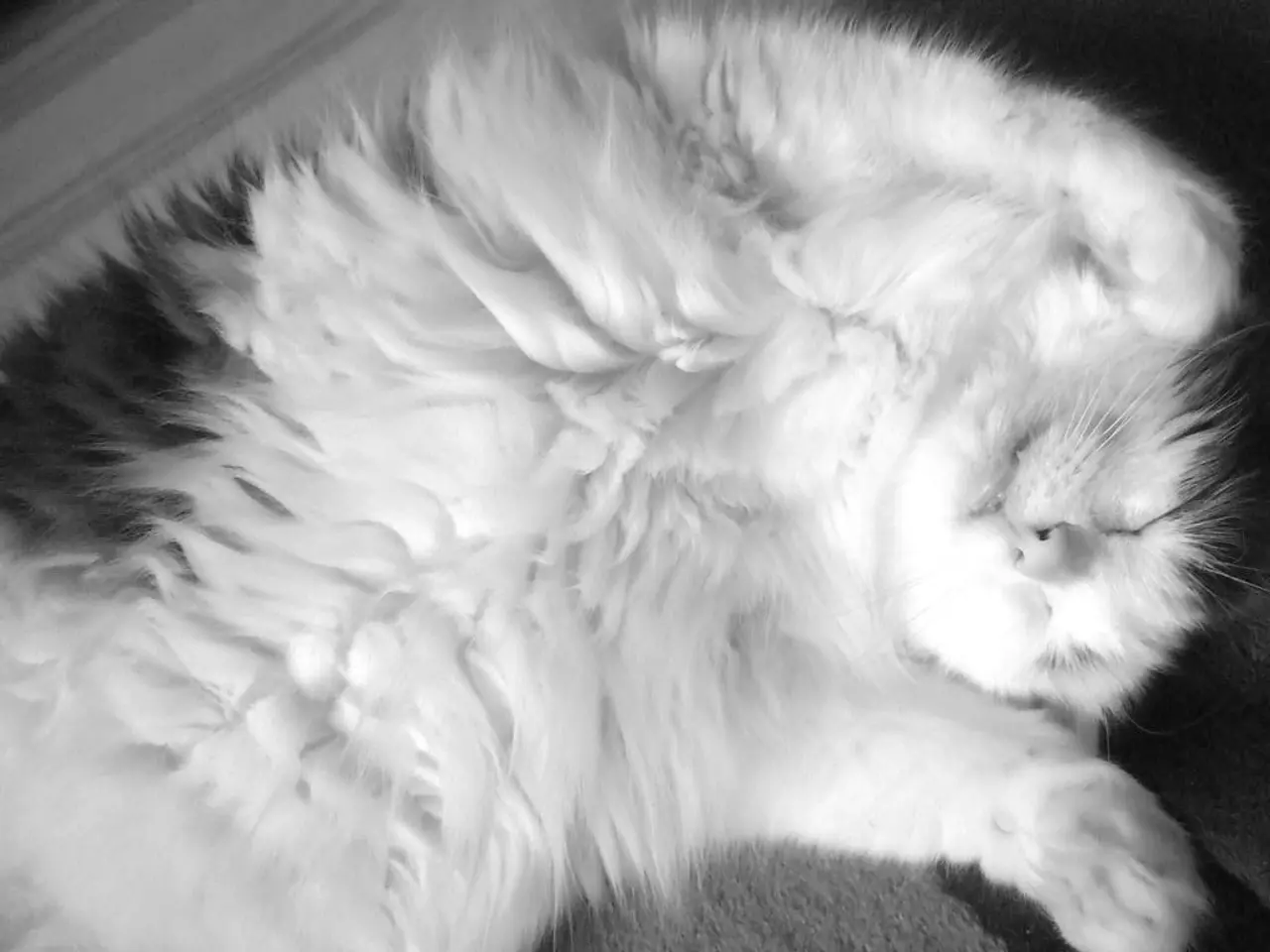Cat Vomiting White Foam: An Examination by Kathryn Heigel-Meyer, DVM, Reviewed by Brittany Kleszynski, DVM, Published on July 23, 2024, and Revised on July 31, 2025. Shared on Facebook, Twitter, Email, and Print.
Cats, just like humans, can occasionally vomit. However, it's essential to understand the reasons behind this behaviour and when it might signal a medical issue.
Vomiting white foam is often due to an empty stomach or mild stomach irritation. This happens when a cat's stomach is empty for a long time, causing bile and gastric juices to irritate the stomach lining, leading to vomiting. Other causes could be eating grass, spoiled food, or minor stomach issues. More serious conditions such as intestinal parasites, foreign objects, or chronic medical conditions may also cause white foamy vomit.
If your cat is vomiting with other symptoms like diarrhea, constipation, lethargy, poor appetite, weight loss, increased drinking, or changes in urination, it's crucial to seek veterinary care as soon as possible. Frequent or persistent vomiting, especially more than one to two times a week, should also be brought to a vet's attention.
Cat owners should be aware of their pet's normal behaviour and any changes that might indicate a problem. For instance, if your cat is lethargic, has lost appetite, is experiencing diarrhea, or shows signs of distress or behavioural changes, these could be signs of an underlying issue.
In some cases, foreign objects like tinsel, dental floss, or thread can cause blockages or irritations in the digestive tract, leading to increased vomiting. Environmental management, such as cat-proofing your home, can help prevent your cat from ingesting such objects.
Persistent vomiting can be a sign of an emergency, especially if your cat is severely lethargic, not eating or drinking for more than 24 hours, and/or there is blood in the vomit. In such cases, seek veterinary attention immediately.
Regular grooming and hairball control products can help reduce the frequency of vomiting in cats prone to hairballs. Special diets and supplements designed to manage hairballs can also be beneficial. For cats vomiting due to an empty stomach, consider feeding smaller, more frequent meals throughout the day to prevent the buildup of digestive fluids.
Weighing your cat once a month can help monitor for any sudden weight loss that may indicate a health issue. Intestinal parasites like roundworms and hookworms can cause gastrointestinal upset and lead to white foamy vomit.
In conclusion, occasional vomiting of white foam can be normal, especially due to an empty stomach, but frequent vomiting or accompanying symptoms suggest a medical problem requiring evaluation by a veterinarian. If you have any concerns about your cat's vomiting, don't hesitate to consult your veterinarian for a thorough evaluation and personalized care plan.
Mental-health and science lectures can provide insights on the possible links between a cat's health-and-wellness and vomiting. Researchers are exploring how stress, anxiety, and negative emotions in cats may influence their gastrointestinal system and cause vomiting.
Caring for a cat's mental health is important for overall health-and-wellness, as chronic stress can exacerbate existing physical health issues, such as vomiting. Encouraging play, providing a comfortable environment, and offering emotional support can help reduce stress levels in cats, enhancing their quality of life.




